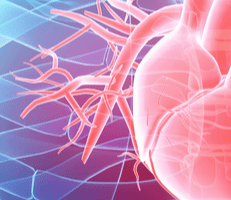Congestive Heart Failure

Phoenix Heart
Cardiologists located in Glendale, Goodyear, Scottsdale, Anthem, Black Canyon City & Avondale, AZ
It’s estimated that nearly six million adults in the United States have congestive heart failure (CHF). About half of them die within five years of their diagnosis, which is why it’s essential to connect with the team at Phoenix Heart at the first sign of symptoms. With early treatment and support from their CHF Clinic, you can get the help you need to live a longer, healthier life. To schedule an appointment, use online booking or call one of the offices in Glendale, Goodyear, Anthem, Buckeye, Laveen, Cottonwood, and Black Canyon City, Arizona.
Congestive Heart Failure Q & A
What is Congestive Heart Failure?
Congestive heart failure (CHF) occurs when your heart can’t pump enough blood to your body. Your heart may not be able to send enough blood to your lungs to pick up oxygen, it may not be strong enough to pump blood out to your body, or both.
What Causes Congestive Heart Failure?
In many cases, CHF is caused by heart muscles that are too weak, but the muscles can also become thick and stiff, which prevents blood from flowing into the heart.
Many health conditions can lead to CHF, including heart valve disease, arrhythmias, cardiomyopathy, and diabetes. However, the leading causes are:
- Coronary Artery Disease (CAD): CAD develops when cholesterol and other fats build up inside the coronary arteries and partially or completely block blood flow. Nearly 70% of all cases of congestive heart failure are caused by CAD that damages the heart muscle.
- High Blood Pressure: When your blood pressure stays too high, it puts extra stress on your heart that can weaken the muscles. It also damages blood vessel walls, which promotes CAD.
What Symptoms Develop Due to Congestive Heart Failure?
When you develop CHF, you can experience:
- Shortness of breath
- Excessive fatigue
- Persistent coughing
- Fluid buildup in your feet, ankles, legs, or abdomen
- Lack of appetite or nausea
- Memory loss or confusion
- Increased heart rate or heart palpitations
Symptoms gradually worsen as your heart becomes more damaged and weaker.
How is Congestive Heart Failure Treated?
Your treatment may include medication to alleviate symptoms and reduce the stress on your heart. It’s also essential to take care of your overall health and take steps to manage underlying problems such as high blood pressure.
Ongoing education is an essential part of your treatment as you learn how to recognize signs of problems, respond to physical changes, and slow the progression of CHF. Treatment for CHF frequently includes lifestyle changes that aren’t easy to make, such as dietary changes, weight loss, limiting fluids, and quitting smoking.
The team at Phoenix Heart is dedicated to providing optimal support, which is why they created the CHF Clinic. At the clinic, they help you avoid the hospital, ER visits, and death by teaching you how to make lifestyle changes. They also help manage your cardiac medications and monitor your lab work for any signs of problems.
If you develop symptoms like shortness of breath and fatigue, call Phoenix Heart or book an appointment online.
Cardiology Services
-
 Cardiovascular Labmore info
Cardiovascular Labmore info -
 Congestive Heart Failuremore info
Congestive Heart Failuremore info -
 Electrophysiologymore info
Electrophysiologymore info -
 Heart Attackmore info
Heart Attackmore info -
 Nuclear Medicinemore info
Nuclear Medicinemore info -
 Clinical Researchmore info
Clinical Researchmore info -
 Structural Heart Defectsmore info
Structural Heart Defectsmore info -
 Ultrasound Testingmore info
Ultrasound Testingmore info -
 Echocardiogrammore info
Echocardiogrammore info -
 Vein Centermore info
Vein Centermore info -
 Women’s Heart Healthmore info
Women’s Heart Healthmore info -
 High Blood Pressure/Hypertensionmore info
High Blood Pressure/Hypertensionmore info -
 High Cholesterolmore info
High Cholesterolmore info -
 Coronary Artery Diseasemore info
Coronary Artery Diseasemore info -
 Stress Testingmore info
Stress Testingmore info -
 Weight Lossmore info
Weight Lossmore info -
 Arrhythmiamore info
Arrhythmiamore info -
 Atrial Fibrillationmore info
Atrial Fibrillationmore info -
 Peripheral Vascular Disease (PVD)more info
Peripheral Vascular Disease (PVD)more info -
 Chest Pain/Anginamore info
Chest Pain/Anginamore info -
Lymphedema & Phlebolymphedemamore info
-
Compression Stockingsmore info
-
Diagnostic Testingmore info
-
Interventional Cardiologymore info
-
Peripheral Arterial Diseasemore info
-
Bradycardiamore info
-
Tachycardiamore info
-
Ventricular Fibrillationmore info
-
Weight Management with Enara Healthmore info

Heart Care
Cardiovascular disease, or heart disease, is the leading cause of death for both men and women in the United States. We treat all ranges of conditions that affect the heart.
Learn More
Vein Care
We diagnose and treat a wide variety of conditions, injuries, and diseases related to the veins in the body.
Learn More
Vascular Care
Our cardiologists take a multidisciplinary approach to vascular care. Our care team provides surgical and non-surgical vascular treatment options to keep you healthy.
Learn More
For Patients
Get the information you need before your appointment, access our online portal, forms, prescription refills and more.
Learn More



















